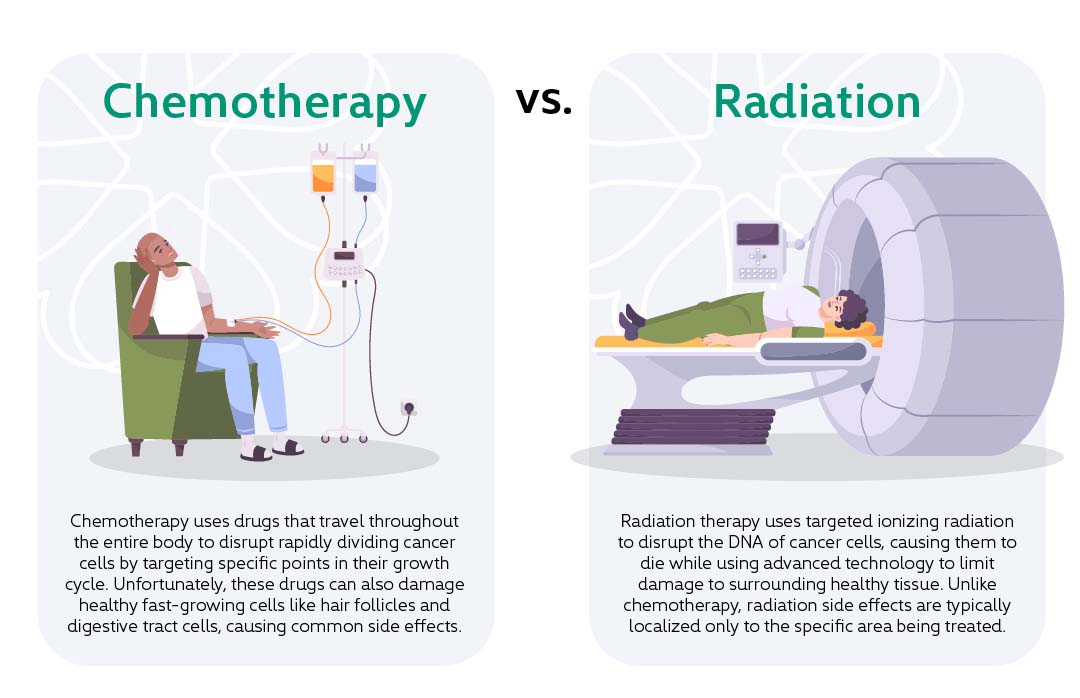Both chemotherapy and radiation therapy are used to treat cancer, a disease in which abnormal cells divide uncontrollably and can spread to surrounding tissue or elsewhere in the body.
- Chemotherapy works by injecting powerful drugs in the body that kill fast-growing cells.
- Radiation therapy uses x-rays or forms of radiation to slow or kill cancer cells.
These two cancer treatments can be prescribed individually, concurrently, or with surgery.
To help you weigh these two popular treatment options, the oncologists at SERO unpack the differences between chemo vs radiation and address common questions patients typically have.
By knowing the difference between chemo vs radiation, you will have a more active role in guiding your cancer care experience and will be more informed about why you are undergoing each treatment and what you can expect from cancer treatment.



